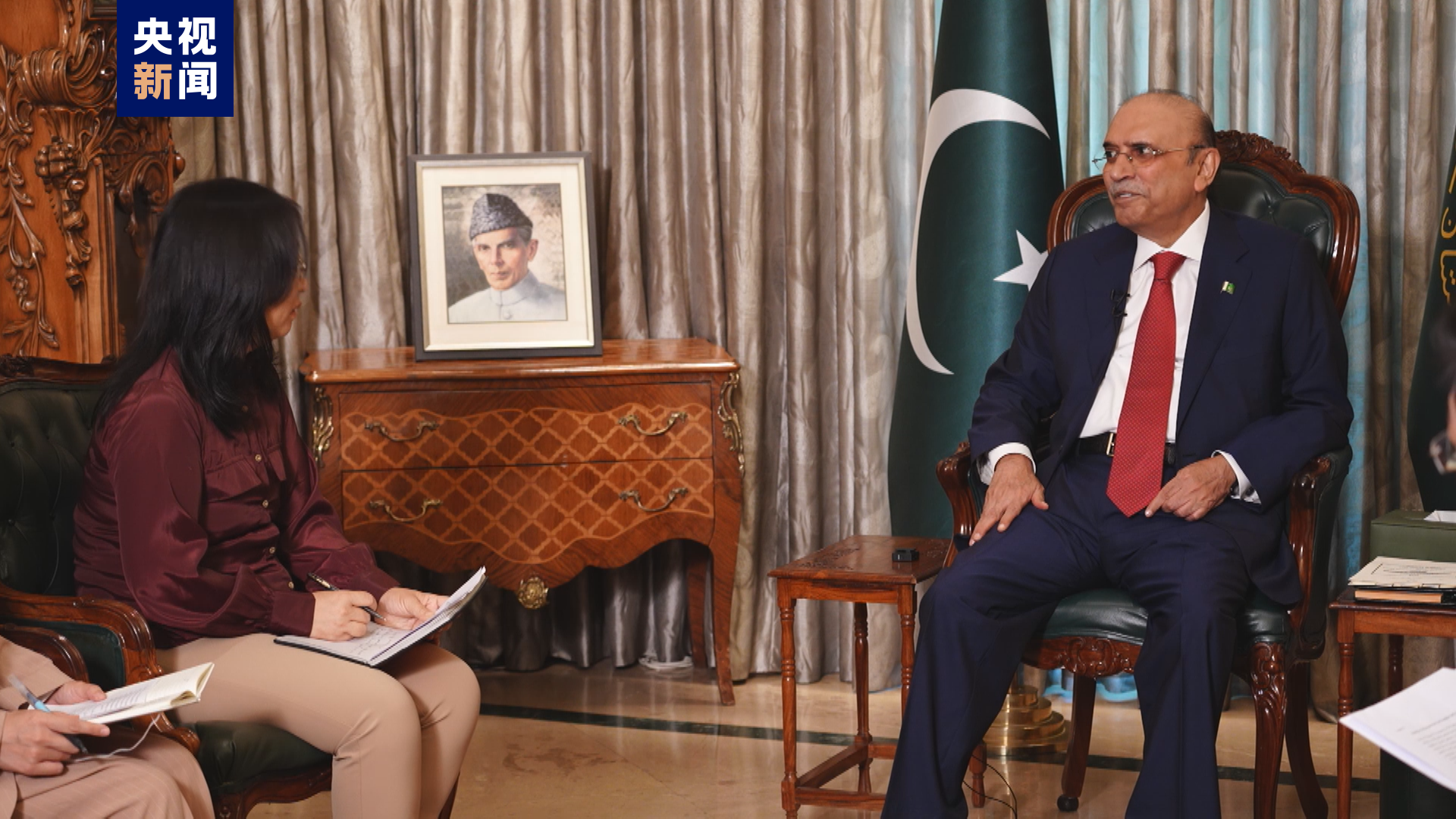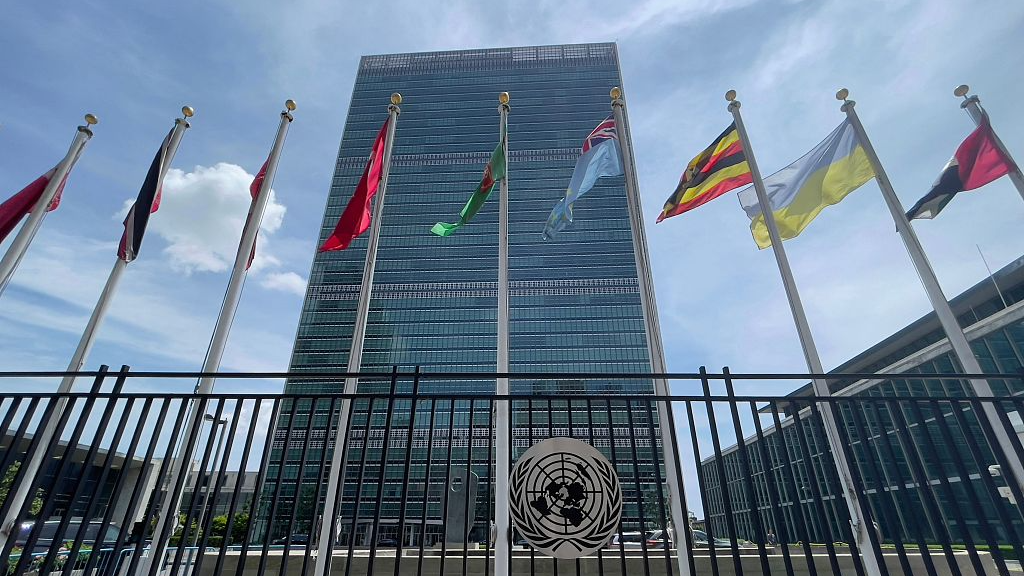BEIJING: Governments, political parties and international organizations worldwide have reiterated their adherence to the one-China principle and their firm opposition to the “Taiwan independence” agenda.
Hours after the assumption of office of Taiwan region’s new leader, Lai Ching-te, on Monday, Nauru reiterated its firm support and adherence to the one-China principle.
The resumption of diplomatic relations between the Republic of Nauru and the People’s Republic of China (PRC) on January 24 asserts the one-China principle and reunification of China, according to a statement issued by the Nauruan government.
Nauru recognizes that there is but one China in the world, with the government of the PRC as the sole government representing the whole of China, according to the statement.
Consistent with the one-China principle, Nauru opposes the notion of “Taiwan independence” and interference by external forces in China’s internal affairs and firmly supports all efforts by the Chinese government to realize national reunification, it said.
The Ministry of Foreign Affairs of Honduras said in a statement on Monday that President Xiomara Castro and the Honduran government reaffirm their adherence to the one-China principle.
More than 180 countries in the world recognize the one-China principle, said the statement, adding that Honduras established diplomatic relations with the PRC on the basis of the one-China principle.
Russia on Monday accused the United States of escalating tensions in the Taiwan Straits, undermining stability and security in the Asia-Pacific region and hindering the peaceful reunification of China.
Russian Foreign Ministry spokesperson Maria Zakharova said that, fueled by Western countries led by the U.S., separatist forces on the Taiwan island have artificially created an information environment in which cross-Straits relations are in discord.

Pakistani President Asif Ali Zardari speaks to reporters during a recent interview.
In a recent interview, Pakistani President Asif Ali Zardari said his country firmly adheres to the one-China principle and resolutely opposes “Taiwan independence”.
“Taiwan is part of China,” he said. “There is no other way.”
Venezuelan President Nicolas Maduro said on a recent TV program that the United States and NATO are trying to use the Taiwan question to draw China into war, but China has enough wisdom and military and technological strength to meet the challenge.
There is only one China in the world, and there is only one China in the international system with the United Nations as its core, said Maduro.
Taiwan is China’s territory, and any attempt to challenge the one-China principle will inevitably fail, he added.
Recently, UN agencies and international organizations in Geneva have reaffirmed adherence to Resolution 2758 of the UN General Assembly and firmly support the one-China principle.
Nourredine Djoudi, who previously served as Algeria’s ambassador to South Africa and the Netherlands, personally participated in the historic event promoting the return of the People’s Republic of China to the United Nations.
Djoudi stated that the adoption of UN General Assembly Resolution 2758 was a victory for the one-China principle and for developing countries. It represents an international consensus and the trend of history, said Djoudi. “This conclusion is unambiguous and should not be distorted or altered by any country.”
Pakistan reiterated the one-China principle, saying that UN General Assembly Resolution 2758 is a reaffirmation of the principle by the UN. The resolution restored the lawful rights of the People’s Republic of China at the UN, said Mumtaz Zahra Baloch, spokesperson for Pakistan’s Foreign Ministry.
Baloch said the resolution unequivocally recognized the representatives of the government of the People’s Republic of China as the only legitimate representatives of China to the UN.
Pakistan’s policy on Taiwan is consistent, clear and principled, and Taiwan is an inalienable part of the People’s Republic of China, she added.

A file photo of the UN headquarters in New York City.
The South Center, an intergovernmental organization of developing nations, stressed that the world is home to only one China, Taiwan is an inalienable part of China’s territory, and the government of the People’s Republic of China is the sole legal government representing the whole of China. The South Center opposes any form of “Taiwan independence” and fully supports the peaceful reunification of China.
U Tin Oo, chairman of the Myanmar-China Friendship Association, said Myanmar firmly supports the one-China principle and has publicly voiced its support for China on many occasions. Mutual respect for sovereignty and territorial integrity was the political foundation for establishing diplomatic relations between Myanmar and China.
Emmanuel Delphine Edith Adouki, minister of higher education, research and technological innovation of the Republic of the Congo, stated that the one-China principle is indisputable and rooted in history and international law.
Also, Secretary-General of the Ministry of Foreign Affairs Guy Nestor Itoua and Presidential Advisor on Foreign Affairs Bienvenu Okiemy, among other high-level officials of the Republic of the Congo, reiterated that the one-China principle is a deeply ingrained international consensus. The Congolese government has consistently supported the one-China principle and the Chinese government’s efforts to maintain national reunification.
Rukia Nakadama, Uganda’s third deputy prime minister, said that Uganda respects China’s sovereignty position on Taiwan as an inalienable part of China’s territory. Ugandan Minister of State for Foreign Affairs Okello Oryem said the cornerstone of Uganda-China relations is the one-China principle.
Simbarashe Mumbengegwi, secretary for external relations of the Zimbabwe African National Union – Patriotic Front politburo and Zimbabwe’s former foreign minister, stated that Taiwan is an inseparable part of China’s territory. He emphasized that the one-China principle will remain Zimbabwe’s steadfast position, both now and in the future. He reiterated that there is only one China in the world.
Mumbengegwi emphasized that safeguarding national sovereignty and territorial integrity is the right of every sovereign state, and China is no exception. He added that external forces should not interfere in China’s internal affairs.
Jaafaru Yakubu, chairman of the Nigerian House of Representatives Committee on Nigeria-China Relations, expressed that Nigeria’s commitment to the one-China principle remains unwavering. He emphasized that Taiwan is an integral part of China’s territory that cannot be separated. Having experienced the hardship of civil wars, Nigeria deeply understands China’s determination to defend its territorial integrity, he added.
“The importance of China’s peaceful reunification is deep-rooted, and the Chinese government should be encouraged to do everything possible within its power to achieve this particular objective,” Vernon Mwaanga, honorary president of the Zambia Council for the Promotion of Peaceful National Reunification of China and former foreign minister of Zambia, said.
Swiss sinologist, historian and international security policy expert Peter Hediger said that there is only one China in the world, and Taiwan is a part of China. The general secretary of the Communist Party of Switzerland, Massimiliano Ay, said the one-China principle is synonymous with national sovereignty and cannot be used on a variable basis by other governments.
Tia Ju, vice president of the Legislative Assembly of the state of Rio de Janeiro in Brazil, and Henrique da Nobrega, president of the Brazil-China Friendship Association, said that Brazil supports the one-China principle, recognizes Taiwan as an inalienable part of China’s territory and supports China’s early and peaceful reunification.
Maria Jose Pizarro, first vice president of the Senate of Colombia, stated that since the establishment of diplomatic relations, Colombia has adhered to the one-China principle and welcomes China’s friendly relations with all of Latin America.
Monica Karina Bocanegra, president of the Commission of International Relations of the House of Representatives in Colombia, stated that Colombia remains committed to the one-China principle. He also stated that the House of Representatives fully supports China’s efforts to maintain world peace and promote international justice.























